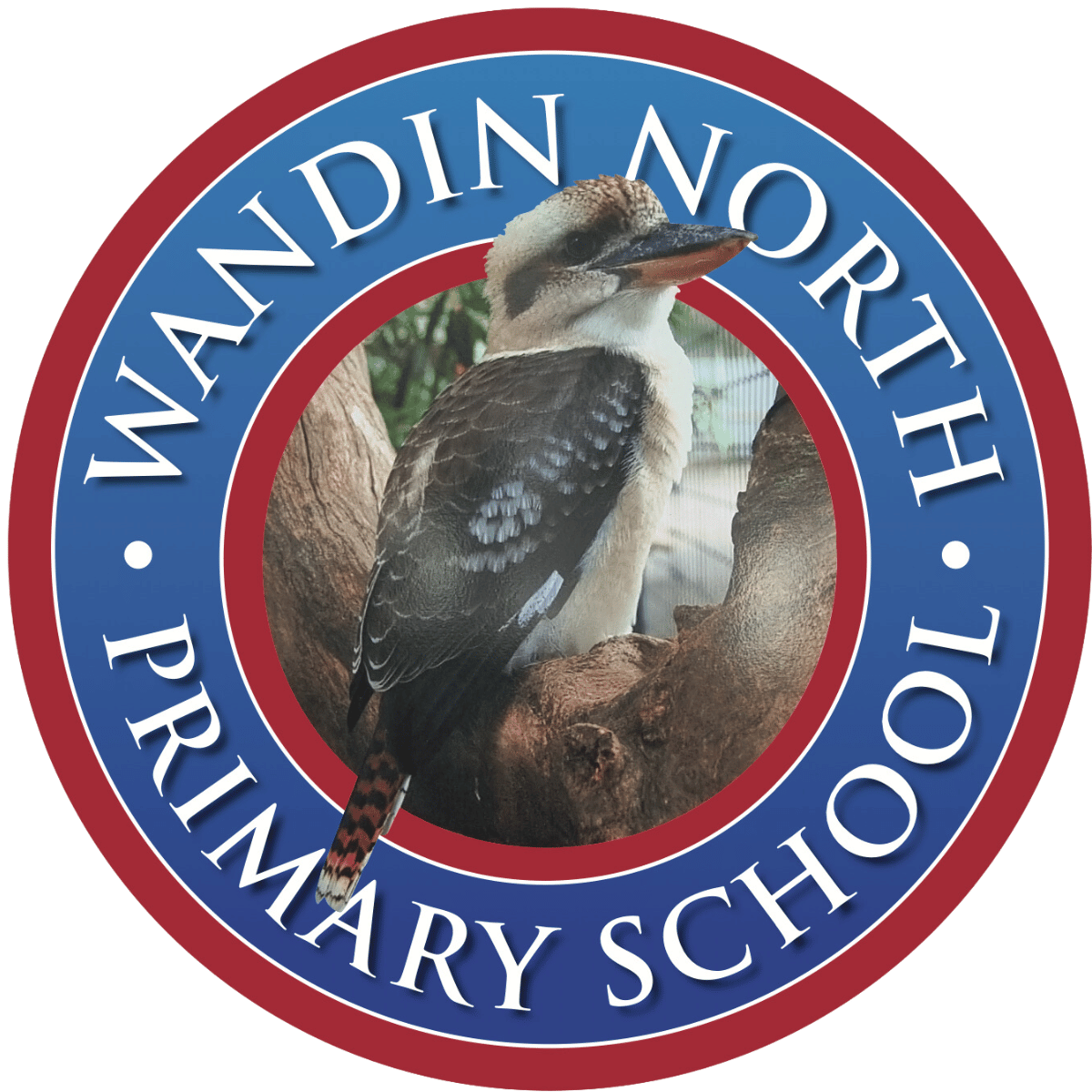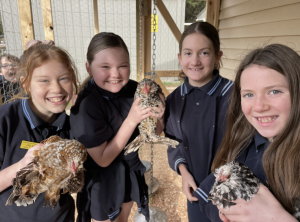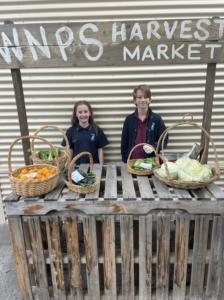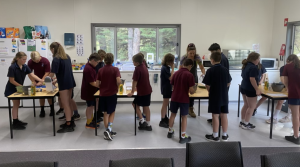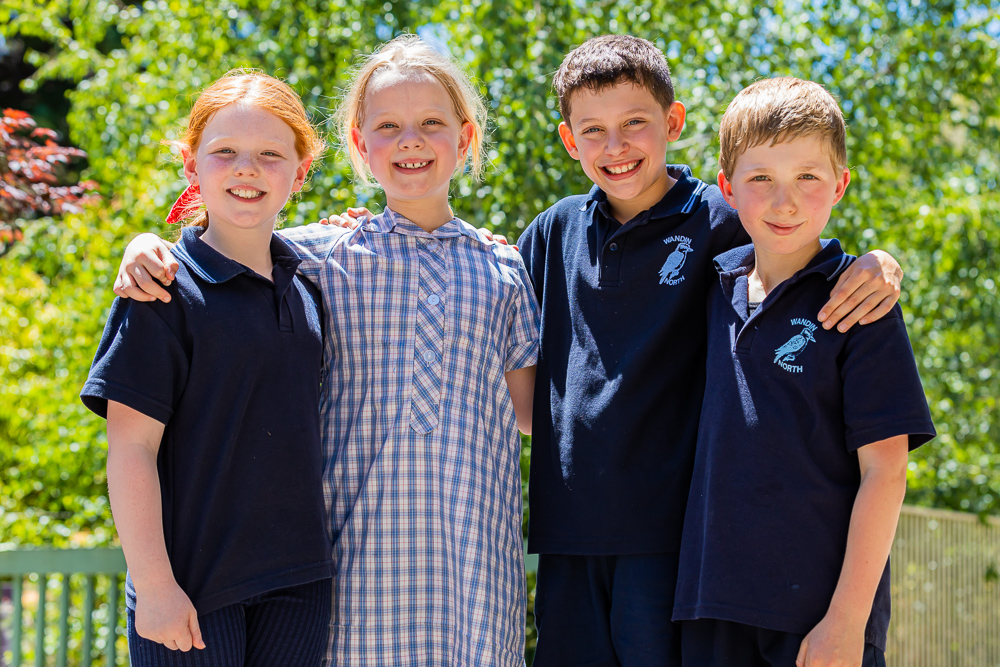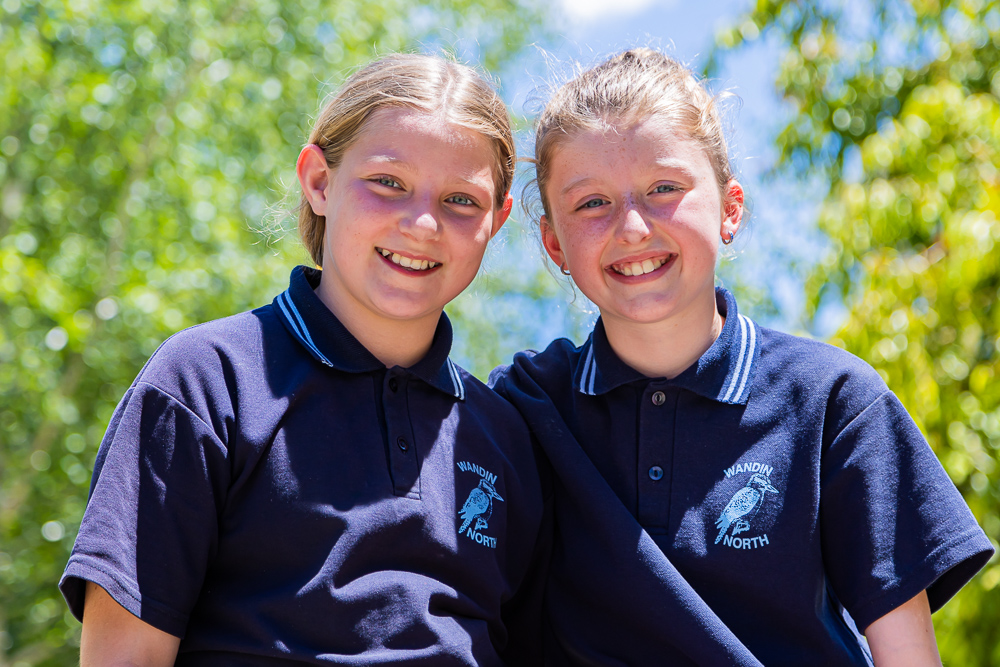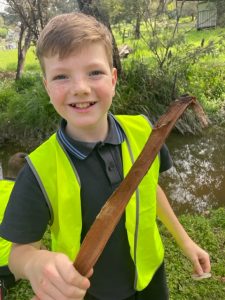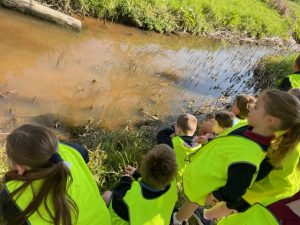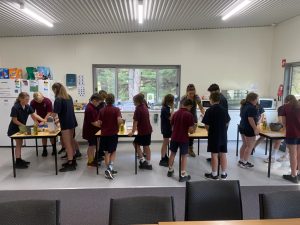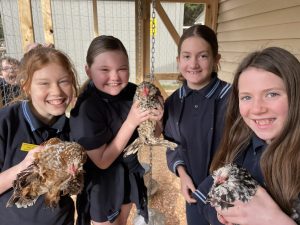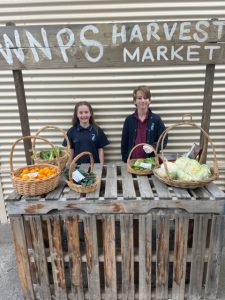Curriculum Opportunities
We pride ourselves on a wide range of curriculum opportunites for our studentsIt’s not the curriculum that we offer that sets us apart, it’s the manner in which it’s delivered
Any school can teach a curriculum. Amazing schools like ours are full of teachers actively and passionately exploring the possibilities of making their teaching practice more innovative, engaging and fun at every turn. This is the single ingredient that drives the most growth in our students.
The success we attain is not only evidenced by the assessment data – but it’s seen through the smiles and joy we see on our student’s faces as a concept is grasped. This is the indefinable element that drives us as teachers to produce and grow our own teaching skills year in, year out.
Literacy
|
|
Step into a Literacy session at Wandin North Primary School and you’ll find engaged, confident students who love to read and write. Our classrooms are vibrant learning spaces where a passion for literature is nurtured through Reader’s and Writer’s Workshops. We believe in the powerful connection between reading and writing. Students are encouraged to respond to the world around them through written and spoken language, exploring their voice as authors and thinkers. Students delve into the craft of writing by studying a range of genres, authors, and the elements that make great writing pieces. In the early years, students from Prep to Grade 2 take part in InitiaLit, a structured and evidence-based synthetic phonics program. This provides a strong foundation in essential literacy skills, ensuring students develop confidence in reading, spelling, and writing from the very beginning of their schooling journey. Every day, students engage in rich conversations, share experiences, and listen to others’ perspectives—fostering deep thinking and communication skills. We teach our students to think strategically about spelling and work with words in a variety of ways to gain an in-depth understanding of the English language. Throughout the school, we celebrate students’ achievements and provide them with targeted strategies to support their individual growth. High expectations are set for every learner, based on individual needs, which are addressed and supported through regular small group and one-on-one teacher-student conferences. By the time students leave Wandin North, they are equipped with the skills needed for the next step in their learning journey. |
Sustainability
|
At Wandin North Primary School we have a specialist subject which focuses on sustainability and environmental science. Each class has a dedicated hour a week to this subject which is full of hands on, outdoor based activities which connect our students to our local and wider environments. Student Participation Community Connections Sustainability Initiatives
|
Student Wellbeing & School Values
|
At Wandin North Primary School, we strive to create a supportive and safe learning environment for all students. To achieve this, we focus on our four core values; Aim High, Be Organised, Bounce Forward and Show Respect. The Wandin North school values are part of our everyday culture. Student’s strengths are celebrated with our whole school value awards, which are presented during our weekly assemblies. Our students develop strong interpersonal skills and form meaningful friendships with their peers and teachers. We are a ‘Growth Mindset’ school which celebrates effort, having a try and making mistakes. Students at Wandin North build their capacity to think for themselves and explore multiple ways to problem solve, resulting in children who have confidence and self-belief in their abilities. Aim High-
Be Organised-
Bounce Forward-
Show Respect-
|
Numeracy
|
At Wandin North we believe all students are mathematicians by developing their mathematical mindsets and strategic approach with any task. Students are engaged in mathematics at Wandin North as they have an opportunity to experience a range of open ended, problem solving, collaborative, hands on, real life, purposeful learning. Our students ‘show their thinking’ and listen to each other as strategies are explained or discovered. Wandin North students ask questions and add new words to numeracy word walls as they are discussed in context. Students investigate authentic, real-life problems which provide them with an understanding of how mathematics can be applied in their everyday life. Students incorporate digital technologies such as iPad applications, computer programs, BeeBots and Spheros. At Wandin North we assess each student to find out what they understand and plan what is next. Students set personal numeracy goals and are extended to their conceptual ability. Our students are encouraged to be the ‘boss of numbers’ and have a ‘growth mindset’ so that any mathematical challenge is approached confidently and strategically.
|
Physical Education
|
OUR PROGRAM: The Health and Physical Education program at Wandin North Primary School are guided by a set of principles that underpin the purpose of student learning in each lesson, these include:
FOUNDATION TO YEAR 2: At the beginning of each year students in Foundation work elements of the Perceptual Motor Program (PMP). The aim is to develop the student’s understandings and perceptions of themselves and their world through movement and motor experiences. Perception of time and space are developed through integrating motor skills and movements in an enjoyable and challenging environment. A typical PMP will focus on gross motor, balance, visual motor, auditory, tactile, laterality, body awareness, and spatial awareness activities. Throughout Foundation to year 2, emphasis is placed upon students developing the 11 Fundamental Movement Skills. They include, sprint/run, vertical jump, catch, hop, side gallop, skip, overarm throw, leap, kick, two-handed strike and dodge. These skills are broken down into simple steps, explicitly modelled, and then used in modified activities over a period of time. This allows our students to refine the skill, as well as developing confidence in the area for future success. LEVELS 3 TO 6: Further development of the Fundamental Movement Skills (FMS) is encouraged throughout the upper years with a particular emphasis on throwing and catching. Throwing and catching skills are an important component of many games and activities played by students. It is important that our students’ practice, refine and develop confidence in these areas in order to prepare them for the games and sport they will continue to play competitively as they move onto high school and later years of adulthood. Netball, softball, baseball, cricket, basketball, volleyball, rugby, football (AFL) are some of the many games that require good skills in throwing and catching. The aim of a ‘game sense’ approach is to promote the development of critical thinking and game appreciation. This approach engages students in minor and modified games where there are opportunities for students to develop both sport specific skills and an understanding of the tactics of the game. INTERSCHOOL SPORTS: Year 5 and 6 students play Interschool Sports during Terms 2 & 3, with the year 6 students being given preferences in the Interschool Sport Teams during both Terms. Sports offered are: Football (AFL), Netball and Volleystars. During the Interschool Sport season, students are encouraged to attend one practice session per week to refine and extend their skills and knowledge of the sport, whilst building teamwork and leadership skills at the same time. ATHLETICS & CROSS COUNTRY: Year 3 to 6 students have the opportunity to represent the school in District, Division, Regional and State Athletics and Cross-Country events. Our school has achieved fantastic results in recent years with some of our students progressing onto Division and Regional events. As a school we participate in a range of activities both in and outside of school and provide our students a mix of sporting opportunities such as:
We also offer a range of clinics that are conducted at the school for different grade levels provided by the Sporting Schools initiative. Sporting Schools is Australia’s largest school-based sports participation program to help children foster a lifelong interest in sports. Sports that are offered include, athletics, touch football, basketball football (AFL), soccer and many more.
|
The Arts
T
|
This area covers both Visual Art and Music. We have two dedicated specialists who take each of the grades in the school for one hour per week for each subject. Visual Arts teaches a range of techniques and skills that the students apply to the topic being taught. Music covers a variety of areas such as rhythm and beat. The videos showcase a recent Digital Art Show that our art teacher has produced.
|
Languages (Indonesian)
Digital Technologies
|
In our Junior School classrooms students are encouraged to become confident and creative users of Digital Technologies through use of Apple TVs, iPads and BeeBots. Students use classroom iPads to research topics in their writing sessions, complete interactive tasks in Literacy and Numeracy as well as for small tasks aimed at developing typing, research or coding skills. Throughout the year students are exposed to the ‘BeeBots’, our tiny robots that encourage coding skills. The students enjoy using these tools to enhance their learning and leave equipped with the building blocks for using Digital Technology in years to come. In the Middle School classrooms, students are supported to become respectful and safe digital citizens. We introduce students to the basic skills required for laptop use. Students have to opportunity to use digital technologies in various curriculum areas such as Numeracy, Literacy, Inquiry and dedicated Digital Technology sessions. Students use the laptops to publish their writing pieces, Numeracy tasks and research individual writing topics. Students begin to explore with our Sphero coding devices. In our Senior School classrooms, the students use Digital Technologies to enhance their learning, explore and create different applications to present their work and utilise online collaborative opportunities to work with their peers. Digital technology is incorporated throughout all areas of the curriculum, providing students with rich and engaging tasks to extend their learning. These tasks incorporate Literacy, Numeracy and Inquiry, along with a dedicated Digital Technologies unit. This unit allows students to explore a number of coding programs and use devices such as Google, Sphero’s and BeeBots, to demonstrate the skills learnt in an interactive and engaging classroom setting.
|
Languages (Indonesian)
|
The Indonesian program at Wandin North helps students to develop an appreciation and respect for another culture of the world. Our students learn Indonesian as a second language and are taught cultural aspects of the country itself by participating in a range of interactive, aural and written activities in a one hour class each week. Tasks have included guided and shared reading, researching, surveying, singing songs, translating text and role playing. Students acquire communication skills in Indonesian and reflect on language use and learning which can be applied in other learning contexts.
|
Global Citizenship
Isn’t it time we got to know each other?
Take our online VIDEO TOUR or book a SCHOOL TOUR!
Meet our principal, teachers, current students, parents, learn about our curriculum opportunities and tips for a smooth start to school.
